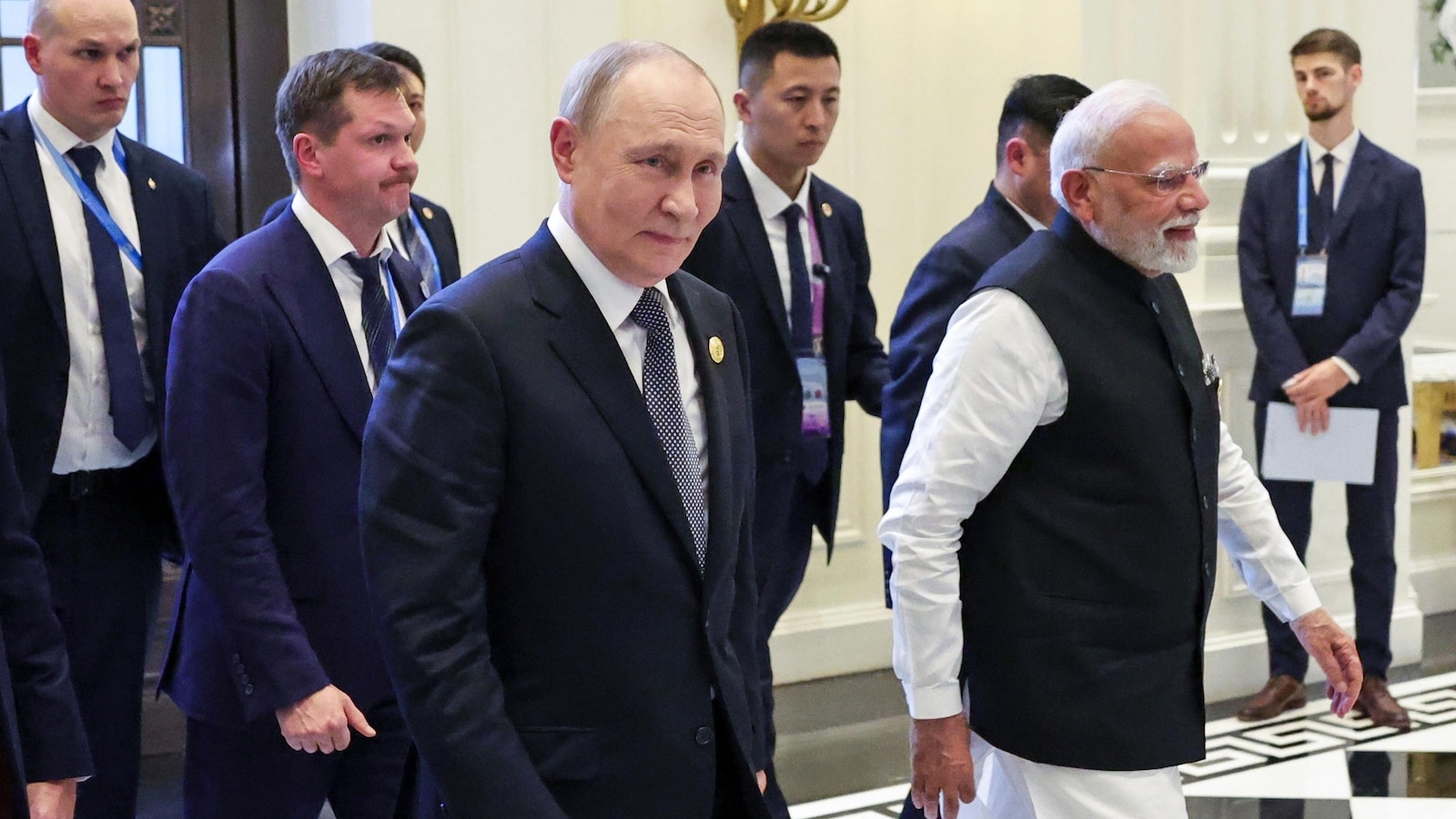French President Emmanuel Macron met German Chancellor Friedrich Merz in Berlin on Wednesday as they sought to present a united front on the US-EU trade row, NATO security and other pressing issues.
Merz and Macron during their working dinner discussed a possible European response to US President Donald Trump's pledge to introduce 30-percent tariffs against the bloc if no deal is reached by August 1.
Greeting Macron, Merz voiced optimism, saying that, as senior-level talks were being held, "we are hearing in these minutes that there could possibly be decisions".
Macron emphasised the shared European desire "to provide stability and have the lowest possible tariffs, but also, of course, to be respected as the partners that we are".
According to the Financial Times newspaper, both sides are on the verge of concluding a trade agreement that would impose 15-percent tariffs on European imports, similar to a deal between the United States and Japan.
Read moreTrump announces 'massive' trade deal with Japan, 15 percent tariff on exports
Macron said: "We have been in constant contact... with our other European colleagues and with the president of the European Commission to monitor, drive and coordinate our response today to the tariff offensive that has been launched."
The EU has sought to tackle the trade tensions through talks, while drawing up detailed plans for retaliation if needed.
US Treasury Secretary Scott Bessent said Wednesday that Washington was making progress on the tariff negotiations, with talks planned between the bloc's top trade negotiator and his American counterpart.
EU Trade Commissioner Maros Sefcovic's talks with US Commerce Secretary Howard Lutnick came after Brussels said it was getting ready to pull the trigger on more than $100 billion in counter-tariffs should negotiations fail.
Bessent sounded an optimistic note on Bloomberg Television. "Talks are going better than they had been," he said. "I think that we are making good progress with the EU."
Read morePlanes, whiskey and cars in EU counter-tariffs plan for US imports
'Energy restart'
Macron and Merz, who took power in May, have been at pains to boost the partnership at the heart of the European Union as Trump has rocked transatlantic ties.
Macron said bilateral "convergence ... whether it concerns defence, security, the energy transition, or artificial intelligence and quantum technology, is absolutely key to gaining efficiency, critical mass and cooperation".
Paris and Berlin, along with London and Warsaw, have pushed efforts to support Ukraine against Russia and build up the defence capabilities of NATO's European member states.
The two leaders also have to discuss several bilateral stumbling blocks, ranging from joint defence projects to energy.

There has been disagreement over a combat aircraft to be made jointly by France, Germany and Spain. The head of French defence company Dassault, Eric Trappier, on Tuesday suggested that the viability of the project was in doubt.
Merz said that they would talk "about common foreign and security policy, and we will talk about the joint projects that we both discussed some time ago and on which we are working intensively".
Another tricky area is energy, where France relies heavily on nuclear power, which Germany has decided to phase out as it shifts increasingly to solar and wind.
Paris wants Berlin to commit to "technology neutrality" and effectively classify nuclear energy as climate-friendly.
Germany's previous coalition government of the Social Democrats and Greens rejected this, but Merz's centre-right CDU/CSU may be more open to the idea.
In a joint newspaper article in May, both leaders pledged a "restart in energy policy" and "equal treatment at the EU level for all low-emission energies".
(FRANCE 24 with AFP)











 English (US) ·
English (US) ·